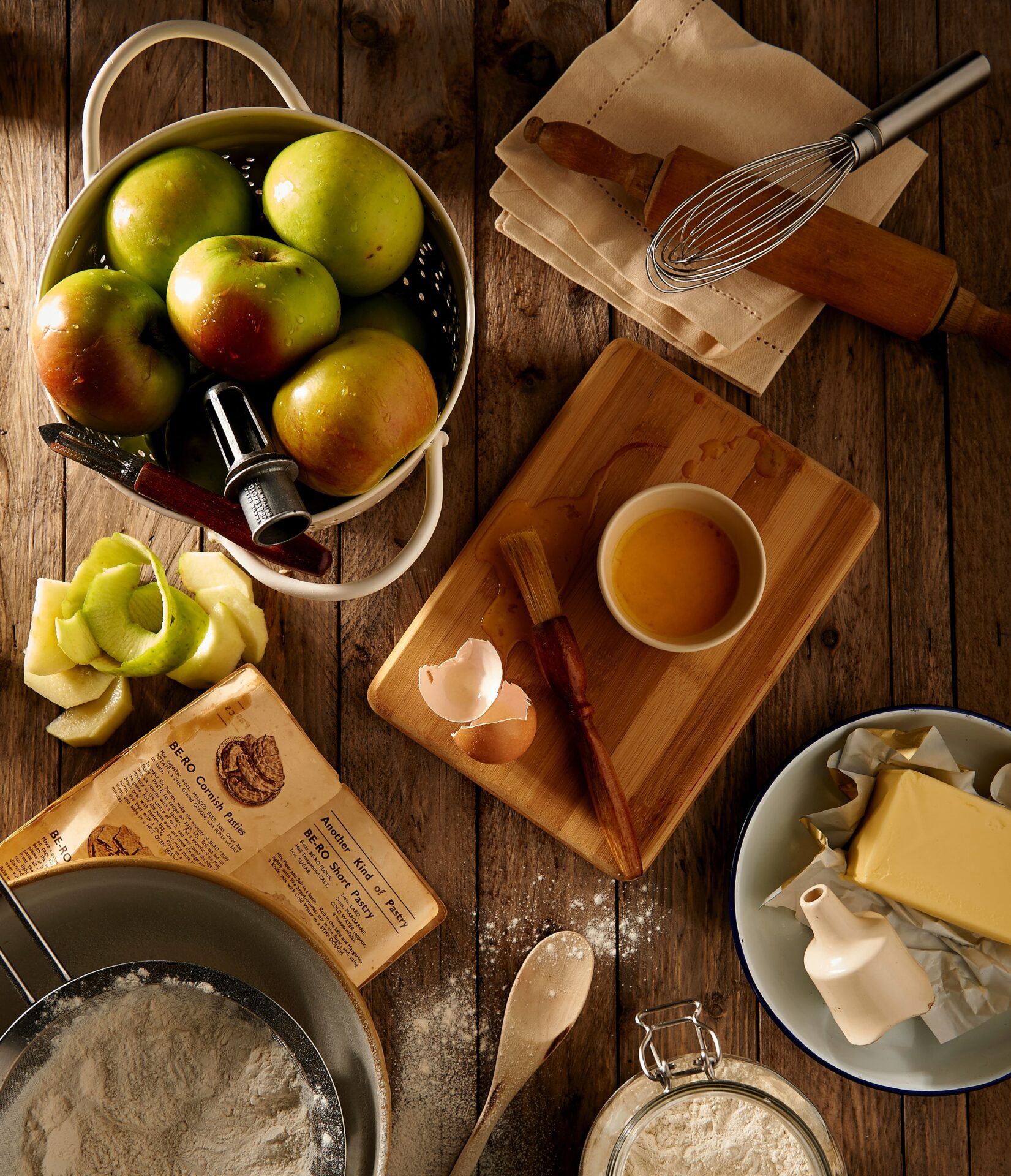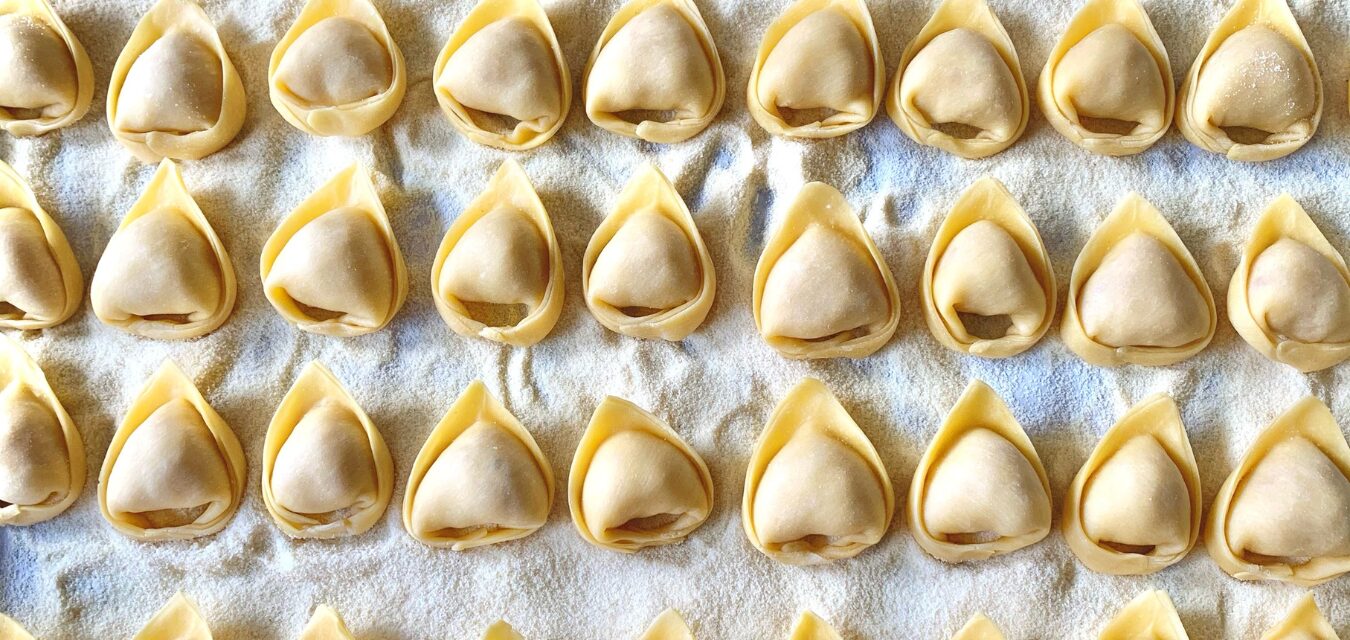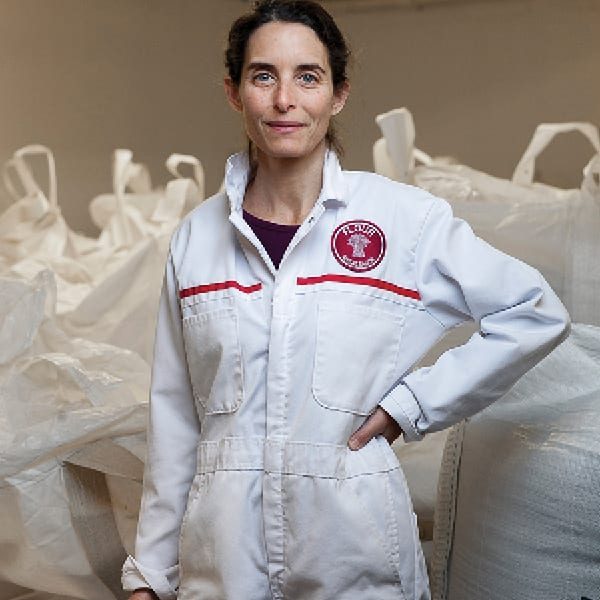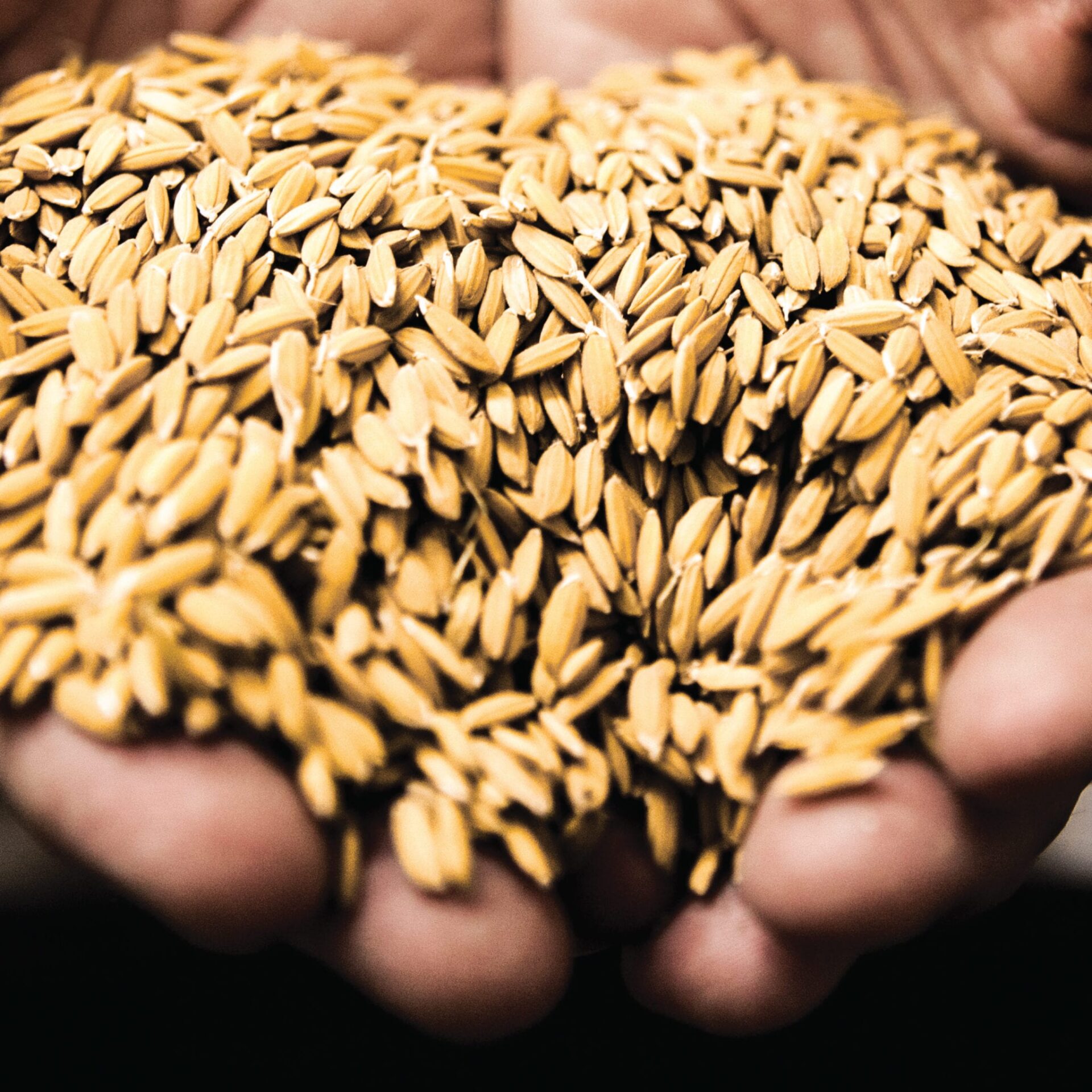How chef Laine Myers makes pasta with terroir at her exclusive CSA, Oro
On a sunny Tuesday afternoon at the Birdhouse Farmers Market in Richmond, Virginia, an unassuming table outfitted with a chalkboard menu amassed a line of eager shoppers. They were waiting for the chance to fill their market baskets with seasonally inspired handmade pasta in a variety of shapes and flavors that can’t be found anywhere else in the world.
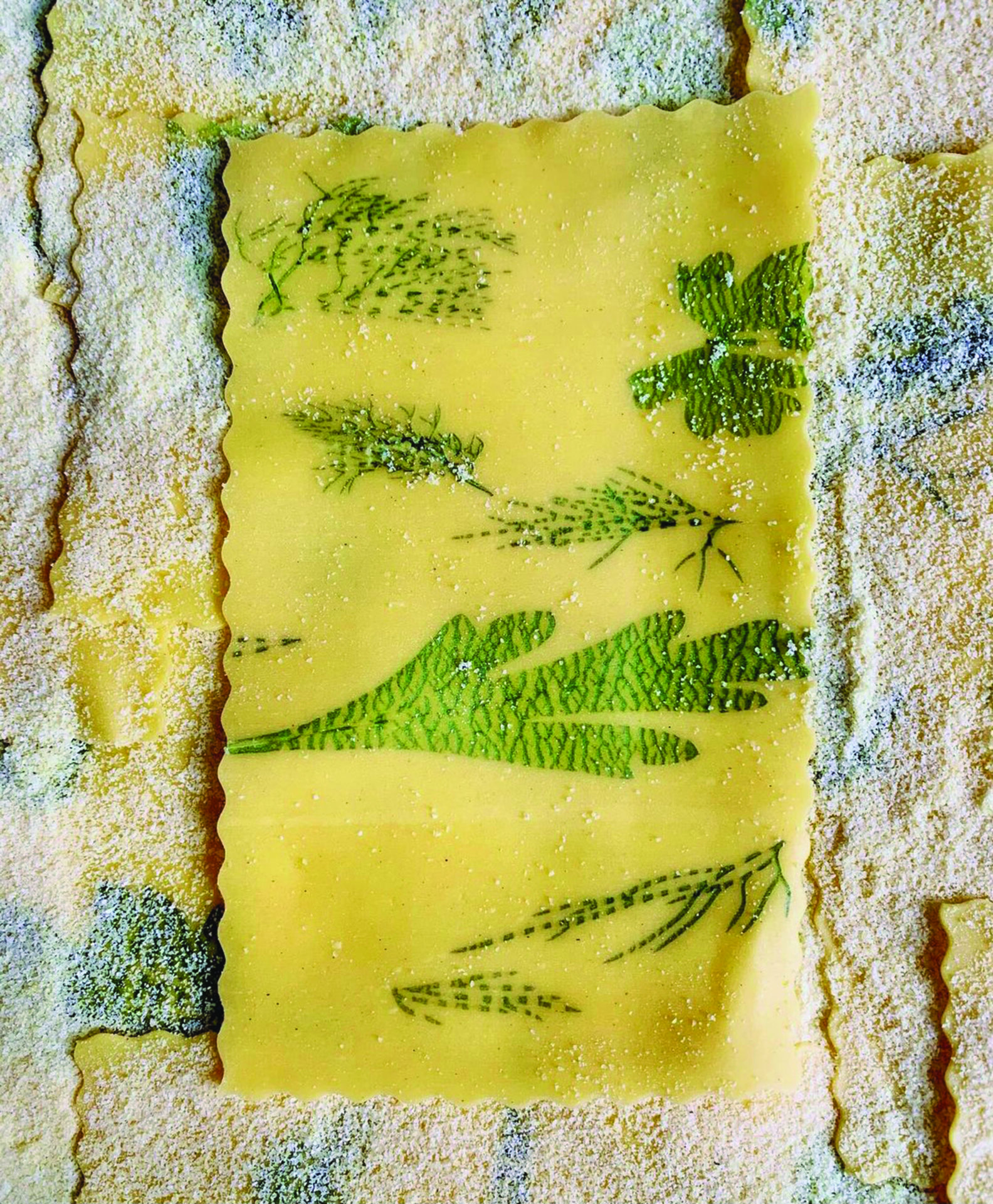
Oro, a pasta retailer and pop-up series, is the brainchild of chef Laine Myers. Myers came up through some of Richmond’s best restaurants, all while discovering a love for pasta and collecting a devoted following. Now, the 33-year-old chef is selling those pastas through an exclusive CSA, two weekly farmers markets, and at sold-out pop-ups all over Richmond.
Myers learned the ropes of pasta making at Graffiato, the now-shuttered Richmond outpost of Top Chef alum Mike Isabella, and spent stints in the kitchens at L’Opossum and Metzger Bar & Butchery. In 2019, she landed a job that would establish her as one of Richmond’s best chefs, helming the kitchen at Nota Bene, where owner Victoria DeRoche gave her free reign to try out small plates and wood-fired pizzas while perfecting her pasta game.
“It was the first time where I felt like, okay, this is Laine’s program,” says Myers. “It was the first time I really put my guts out there.” Her contributions to the dining community were well received, garnering nominations for Best Chef from Richmond’s dining accolades, the Elby Awards, in 2019 and 2020, and sparking a flurry of recognition, including being selected by Food & Wine to compete in Barilla’s Pasta World Championship in 2020.
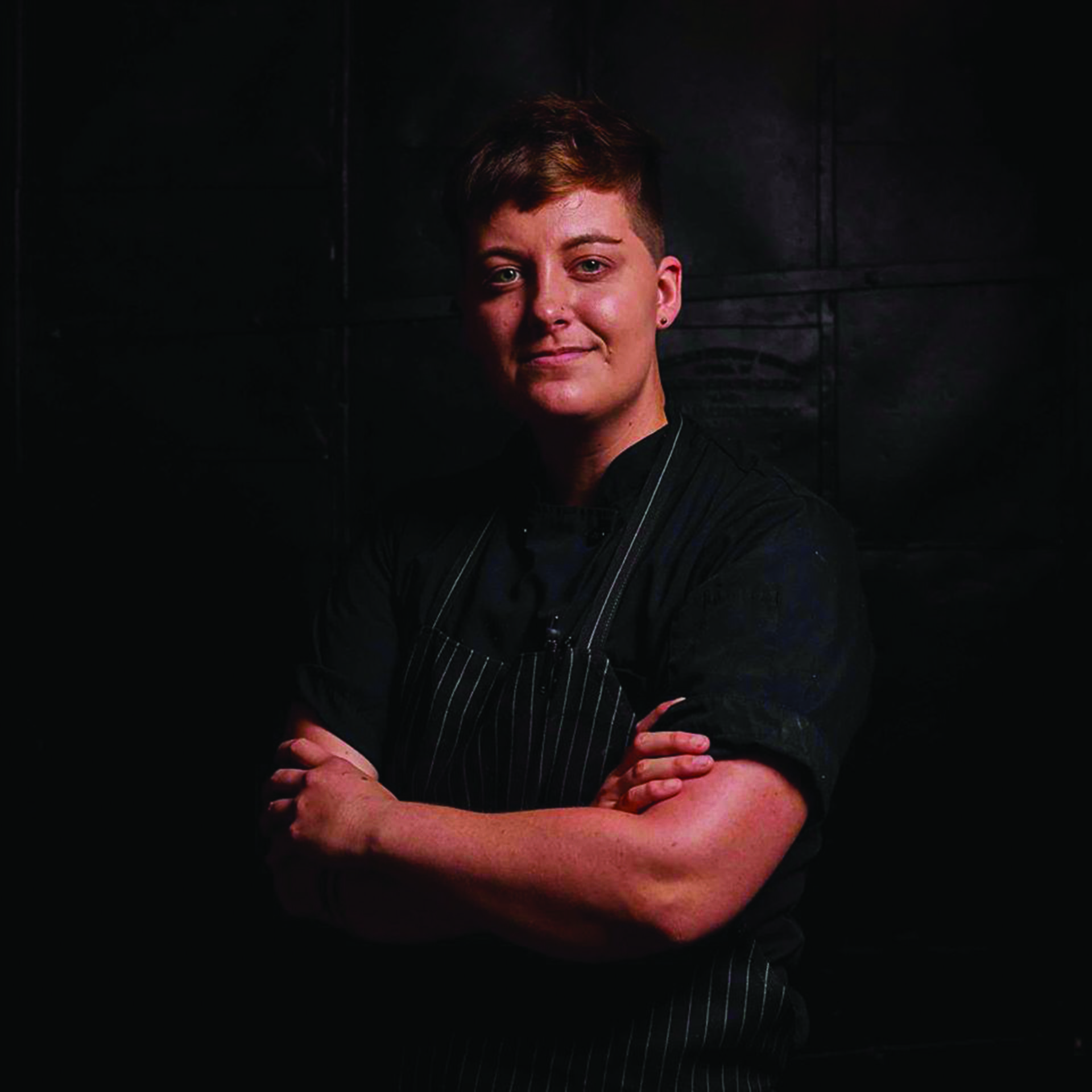
It was in November of 2019 that Myers and Nota Bene sous chef Charlie Shew launched Oro, a side hustle devoted to artisanal pasta. Their first pop-up, on an off night at Nota Bene, was met with rave reviews, and the duo began scheduling more in the coming months. Then, that old familiar tale: The Covid-19 pandemic changed everything. DeRoche decided to pivot Nota Bene to function as a grab-and-go market, a signal to Myers that it was time for a change. She took a few months to work on herself, and then, she says, the kitchen was calling again.
“I had this now-or-never feeling about Oro,” Myers says. “We had done these pop-ups, and they were so well received and well supported.” Around the same time, Shew left to pursue another opportunity, leaving Myers to maintain Oro on her own. “I’ve always kind of been a solo act, so I embraced it,” she says.
In the months that followed, Myers went all-in on pasta, securing space at Hatch Kitchen, an incubator for food businesses, setting up a pasta CSA for about 30 pasta-obsessed subscribers, and buying an extruder for making special shapes. Business took off, and in 2021, Oro pasta was the talk of the town, earning Myers a spot on Eater DC’s list of the Top 22 Restaurants in Richmond. In 2022, she continued to expand with pop-ups at buzzy destinations like the Jasper, Celladora, and Pizza Bones.
While technique is essential, it’s the wheat, Myers says, that makes Oro’s pastas so unique. She scours the internet and talks with local bakers, like Evrim Dogu of Sub Rosa Bakery, to discover locally grown heirloom varieties. Unlike commercially available flours, flour made from these grains has characteristics that help build the texture and flavors Myers’ pasta is known for.
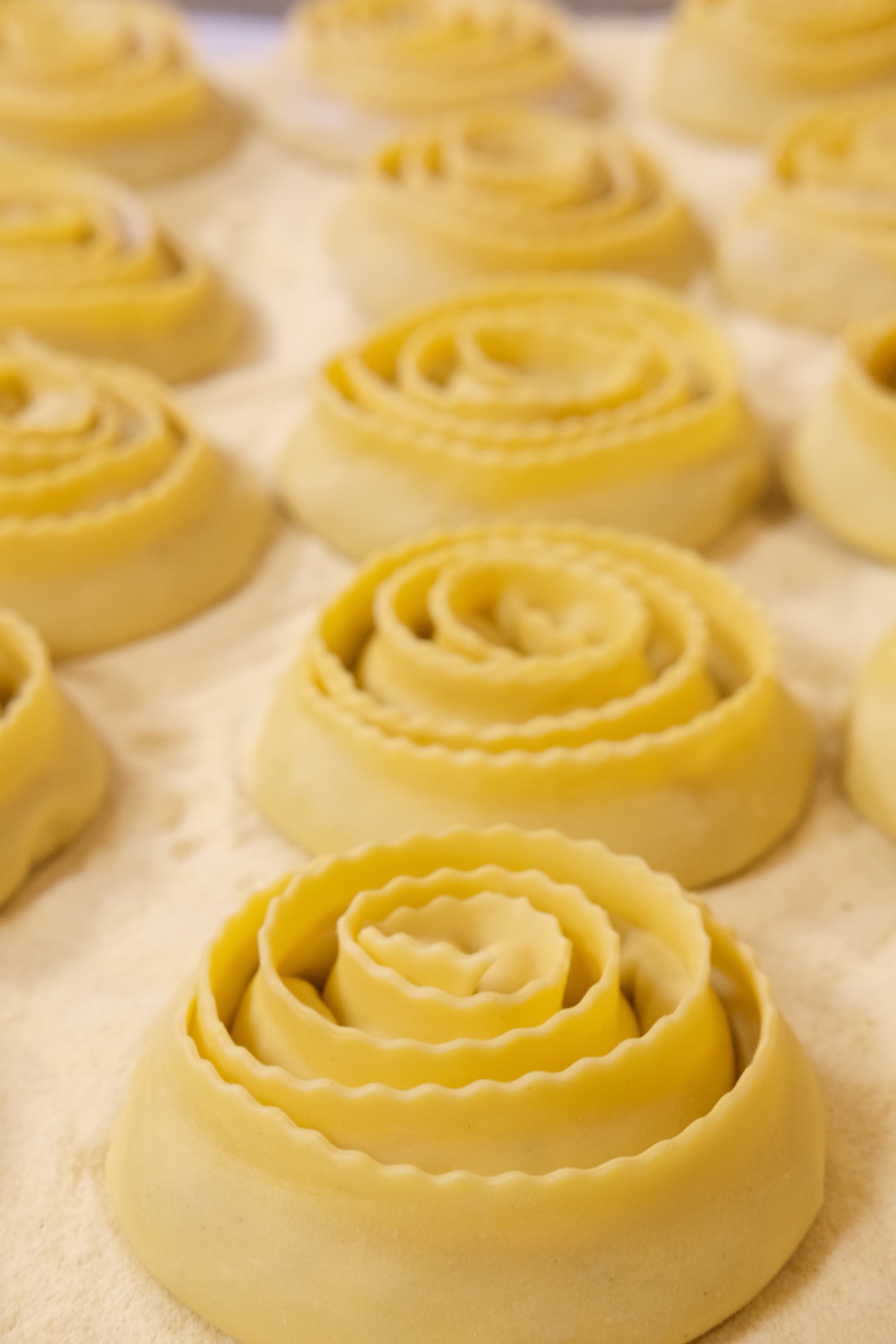
“I think it’s important to start at the ‘why’ part of choosing to incorporate regional grain into our product,” says Myers. “Coarse semolina is the main ingredient we tend to think of when evaluating what’s responsible for the ‘toothsomeness’ of pasta. While I’d agree, I also think it’s important to consider flavor as well.” She explains that most commercially available wheat sifts out the bran and germ to obtain a purer flour with a longer shelf life. “But by sifting out all the good stuff,” Myers says, “you’re missing out on a product that’s far more flavorful and nutrient dense.”
Myers works closely with farmer-millers like Deep Roots Milling in Roseland, Virginia, and Grapewood Farm, a family-run operation in Virginia’s Northern Neck. There, owner Fred Sachs and his son David Sachs specialize in “Virginia grown, Virginia ground” wheat. Their tagline hints at the Sachs’ sense of stewardship for the land itself. The wheat they produce (and the pasta or bread that’s made with it) evokes a sense of unmistakable terroir, derived from the soil that they so steadfastly maintain.
“We talk about the terroir as you would of the grape in a wine, but what does that speak to? It speaks to the soil and the land it’s grown on,” explains David. “We believe that there is a direct correlation between the health of the soil and the nutrient density and flavor of the product.”
When Myers starts rattling off names of the grains she uses—emer, spelt, einkorn—it becomes clear that the subject is a consuming passion; and in Fred Sachs, Myers has found a kindred spirit. “His process is so meticulously thought out, and I love how unique his grain is,” she says. The fragrance and flavors of the fresh wheat, earthy and slightly nutty, are unmatched by what is on offer at the grocery store.
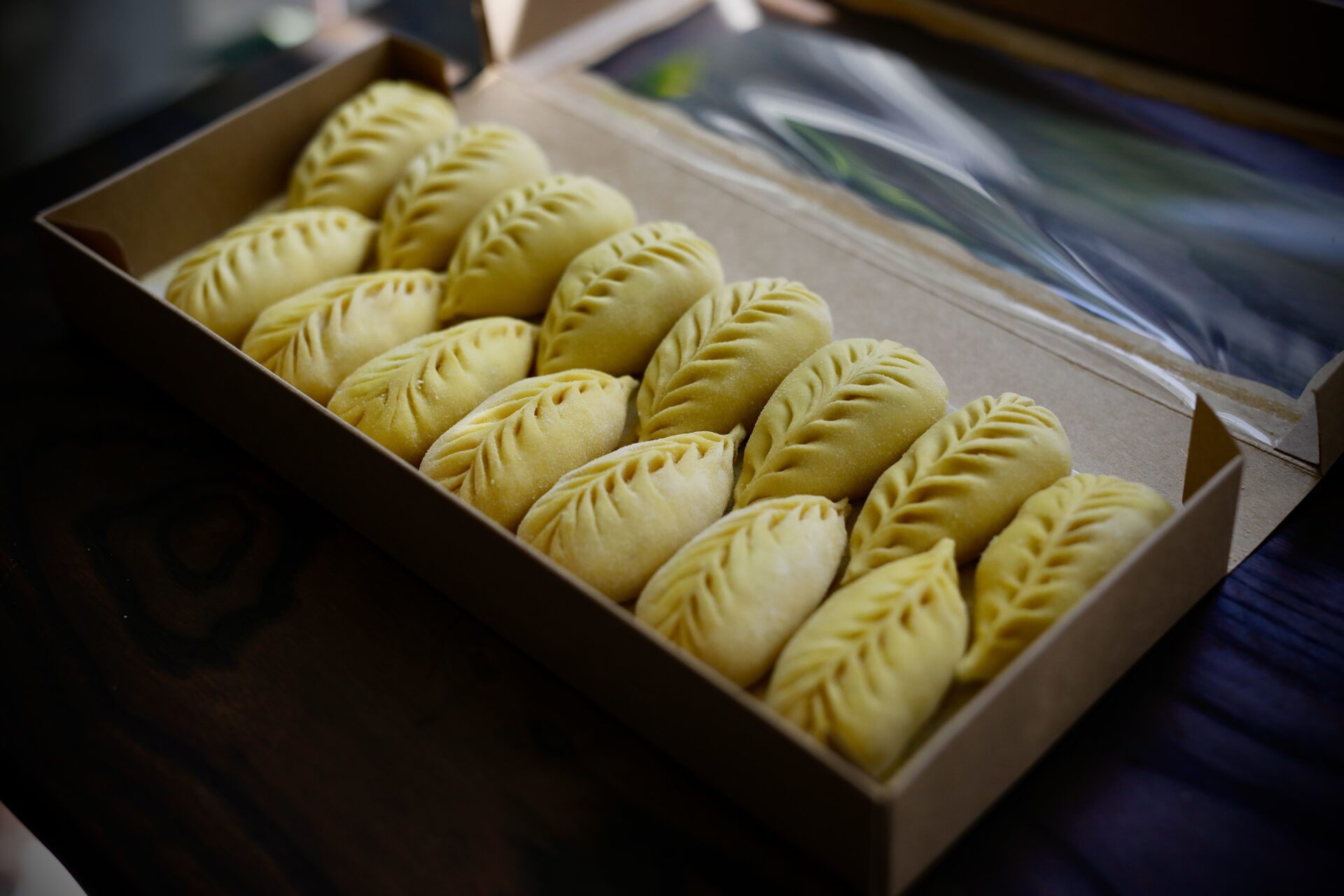
It’s these flavors that bring life to Oro’s pastas—spunky sauce-clingers like creste de gallo, which mimics the ruffles of a coxcomb, or radiatorre, the “radiator,” which Myers makes with Grapewood Farm’s Virginia Red Wheat. Myers and her partner, Adriana Simmons, can be found expounding on the merits of these grains twice a week at the farmers market, where Myers is able to get to know her customers and witness firsthand how they receive her products.
“I love seeing how people get really excited about pasta,” she says. “I want people to be psyched when they get this pasta. For the people who are appreciative of artisan quality, they’ll gravitate toward us, and that’s the niche I’m going for.”
keep reading
Southern Makers
Carolina Ground Goes Against the Grain
Read about how Jennifer Lapidus went from baker to writer to owner of Carolina Ground. Her passion for flour and grains connects farmers to a bakers kitchen.
Southern Makers
Golden Standard of Carolina Gold Rice
In search of flavor, a handful of driven farmers, scientists, millers, and academics have brought back the grandfather of Southern grains: Carolina Gold Rice.
Southern Makers
Becoming Zak the Baker
Zak Stern will stop at nothing in his quest to bring traditional breads and pastries to Miami.


